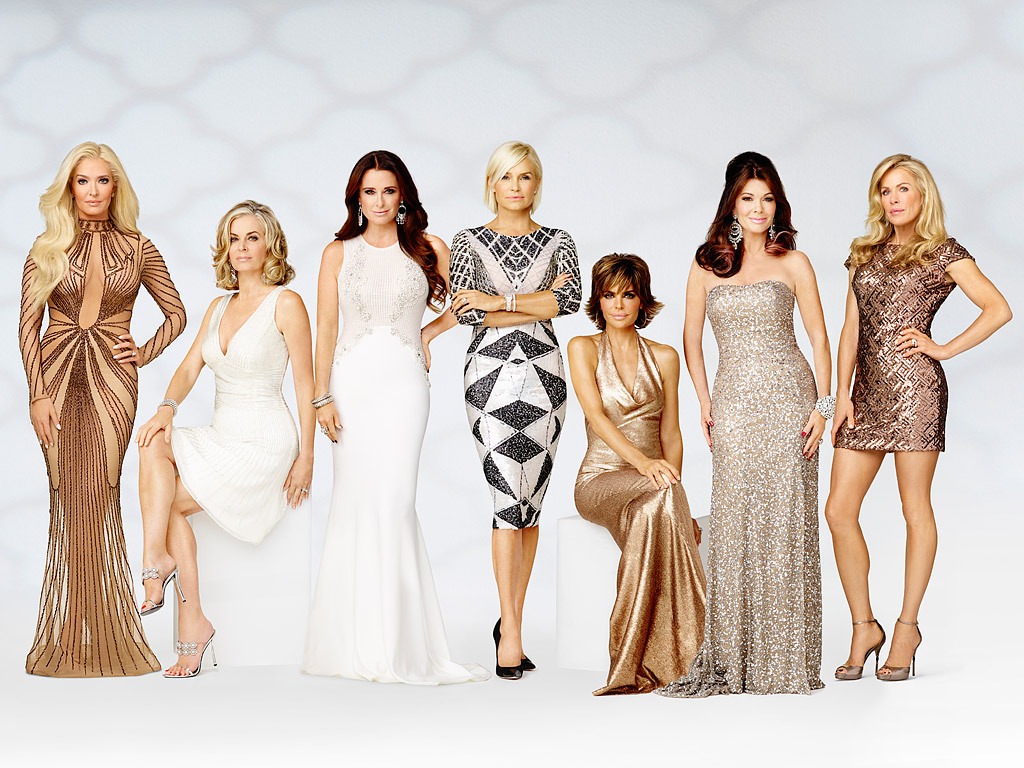The enticing illusion of reality TV
From shows about the rich and famous, and dating, to the lives of ordinary people, what is it about reality TV that makes it so addictive? One way or another, we’ve all watched an episode of it and found ourselves enamoured with the lives of real people who lead lives so far removed from our own, and (arguably) it’s this unreality of the casts that urges us to keep watching.
*Multimedia version is accessible by clicking here!*
Common reality shows are ones which follow the lives of insanely wealthy, famous people, the most notable being Keeping Up With The Kardashians, which ran for 14 years and 20 seasons before its end this year. A show about a rich family in California kept us all entertained for over a decade, but pinpointing why it was so intriguing to watch is difficult. The Kardashians have a lifestyle so different from ours, yet we still tuned in to see what they were up to and then discuss their lives on social media with other people who also simply could not relate to them.
Simply put, reality TV is drama that doesn’t affect our actual lives, and therefore we escape from our reality by tuning into someone else’s
The success of the Kardashians, as controversial as it may be, revealed something within the reality TV industry: people are more than willing to watch the drama of other people’s lives. Each year, we see an increasing number of series following the extravagant lives of individuals and families whose only talent is being themselves. The recent success of Selling Sunset is a testament to this. The series sparked intense debate after its release, with people even making almost hour-long YouTube videos about it. The idea that we may make better decisions than the people in these shows is quite interesting, mainly because we know we will likely never live a life like that.
Simply put, reality TV is drama that doesn’t affect our actual lives, and therefore we escape from our reality by tuning into someone else’s. We’re free to judge others as much as we want, because at the end of the day, it’s not our problem. Fictional series have a different effect, as we’re aware from the beginning that they are fake and in no way connected to our reality. With reality TV, we feel like we can comment on and criticise the people involved because we can access them through social media.
The creation of the YouTuber in recent years is an interesting phenomenon. They choose to give themselves a platform and rely on being accessible to their audience in order to grow. YouTubers in particular are known for allowing their audience to have all-access to their public and private lives. While this is not formal reality TV as such, it’s still reality entertainment that focuses on being relatable, which terrestrial programming does not. In fact, when YouTubers start to live a more extravagant lifestyle is exactly when the criticism rises spectacularly. Figures such as Zoella and Emma Chamberlain have been criticised for accumulating wealth, even though the reason that they became so successful was because they were fulfilling our demands.
One effect of reality TV is its creation of para-social relationships. These are relationships where viewers start to feel so connected to those on screen that they feel they know them personally. The impact that reality TV stars can have is undeniable – many recent stars go on to be social media influencers, collecting brand deals and paving new careers for themselves. As we get so used to following their lives, we start to feel as though we know them, and then expect more responsibility and accountability from these people.
We gaze upon the dramatic lives of others to distract us from the drama of our own
With fictional series, the character development ends as soon as the show does, whereas with reality TV we can continue to watch what stars do with their lives after the cameras stop rolling. Its longevity is what keeps it going: ever-changing casts keep the shows fresh, while previous stars can cement themselves as a part of pop culture – and all they need is a unique personality to do so.
However, a criticism of the genre is how increasingly manufactured the shows are becoming. Without fail, every season of Love Island receives many complaints to Ofcom about how stars are being represented on the show. There’s even been controversy surrounding the scenes that producers decide to air, with complaints suggesting that the show glamorises toxic and potentially abusive behaviour. Despite this, reality TV serves as an escape. We gaze upon the dramatic lives of others to distract us from the drama of our own. After all, it’s a lot more fun to be angry about situations that don’t personally affect our own lives.

Comments